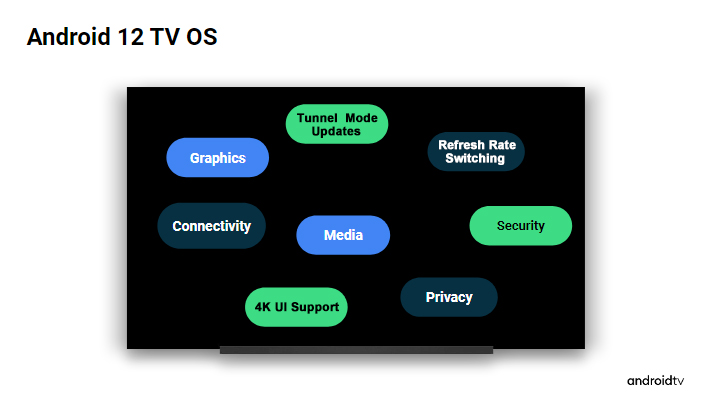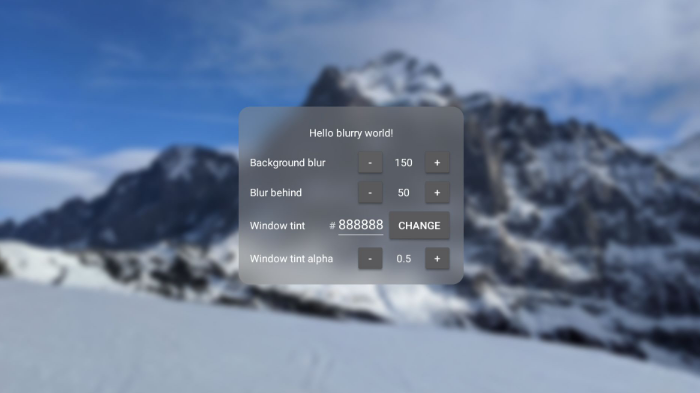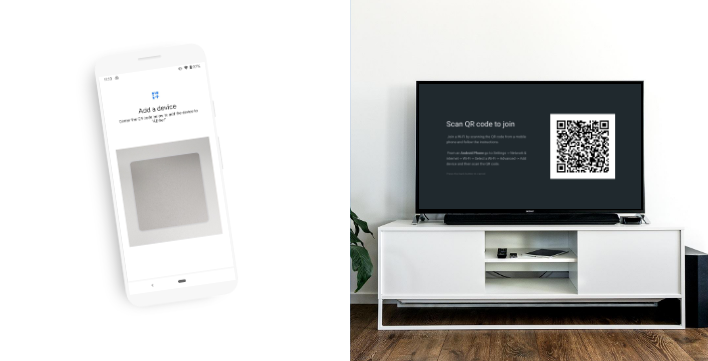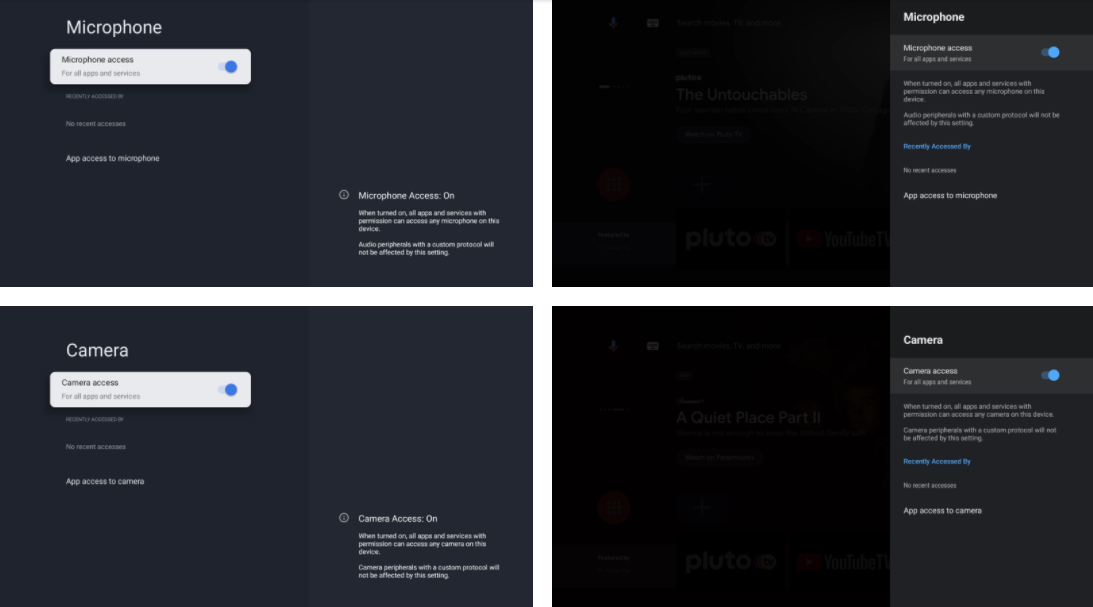Android TV 12 OS brings some much-awaited updates in terms of features and visual changes since the Android 9 Pie arrival. The upgrade brings a whole new UI and a bunch of new features, especially for those with high-end televisions. What’s new in Android TV 12? Let’s have a peek.

Media
With Android TV 12, There have three new features to better support ever-improving picture quality.
- Dynamic Refresh Rate Switching Settings: For a smoother viewing experience, Android 12 now supports seamless and non-seamless refresh rate switching. Therefore app developers can integrate the feature to seamlessly switch between frame rates and check whether a TV supports seamless frame rate switching. This feature has been particularly useful on smartphones due to the benefits it brings to battery life.
- Tunnel Mode Updates: Updates to Android’s tunnel mode are making it even easier for app developers to support consistent and efficient playback across devices by reducing media processing overhead in the Android Framework.
- Better display mode reporting: Google is improving how TV devices report display modes and making hotplugging behavior more consistent. App developers no longer need to use workarounds for accurately detecting display modes or for handling HDMI hotplug events.
User Interface
Android TV brings two new additions to the UI that help developers provide users with a richer visual experience on high-end devices.
- 4K UI support: While Previous versions of Android TV have always supported 4K content playback, Android 12 will be the first time that the UI rendering at 4k resolution on compatible Android TV devices.Previously, the UI was rendered at 1080p maximum with upscaling to 4K resolution. This should hopefully make the home screen interface, Settings, and other system surfaces look much sharper.
- Background blurs: Background blurring using RenderEffect (for in-app blurs) and WindowManager (for cross-window blurs) can now be used to easily enhance the visual separation of different UI layers.

Example background blur used to separate UI layers.
Privacy and Security
- Microphone and camera indicators: Users will now see any time apps are accessing the microphone or camera by showing an indicator on the TV screen. Any service on your TV that uses these sensors will trigger a bright green icon at the top corner for at least a few seconds. For better visibility of recent app accesses to microphone and camera, users can visit their privacy settings on TV.

Microphone and camera indicators showing during a video call. credit: Ekaterina Bolovtsova.
- Microphone and camera toggles: Two new global privacy settings are now available, allowing the user to easily toggle access to the microphone or camera. When those toggles are disabled, apps will be unable to access microphone audio and camera video.
Connectivity
Quick Connect: It’s available under the “Network and Internet” section, this feature will allow users to generate a QR on the display to assist with connecting to the internet. Notably, though, Google confirmed that this feature is meant to allow the phone to connect to your Android/Google TV to speed up the process of connecting the TV to the internet by allowing the text input to be handled on the phone

Tweaked design and animations
Google has also made some minor tweaks to the design of the underlying Android TV OS that bleeds through both of its TV experiences in Android 12. In pop-up menus, you’d see an app asking for mic/camera permission and similar functions. The pop-ups have been tweaked not only with rounded buttons but also with transparent elements that are now better supported on a platform level.

Another minor tweak is the screenshot animation. While this is something you probably won’t be used on Android TV, the animation has finally been updated from the legacy look that was present in older versions of Android to a quick flash of the edges of the display. In a similar vein, some apps now trigger a splash screen and slight animation upon opening.
Android 12 for TVs is expected to be publicly released in late 2021. However, you will have to wait for the Android TV device manufacturer to make the software available.This update can take a long time.
If you are looking for your Android TV 12 solution for your OTT business, welcome to contact our professional team for help at contact@sdmctech.com
Source: https://en.sdmctech.com/news/industry-knowledge_1933.html






Comments
Post a Comment